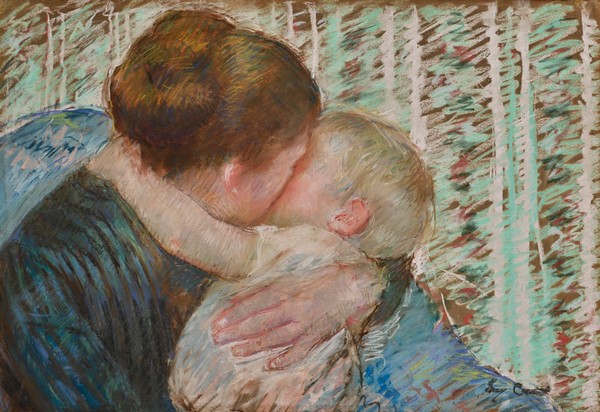
A poem whose stanzas all have the same regular structure seem suitable for a strophic song. Even more if it’s a lullaby. The composer will surely consider that five stanzas are long enough; or perhaps not, and he will put performers and audience to test by repeating six of the eight verses of each stanza. This is our Schubert! Either the 19th-century audience was more patient than we are or he thought he was more than capable of making a pure strophic song which lasted seven or eight minutes and flew by as they were two, as it's Wiegenlied, D 867 (He must have been pleased with the results, because he did something similar a year later with Des Fischers Liebesglück, a gem we heard some time ago).
I'm speaking of eight-verses stanzas because that's how Johann Gabriel Seidl's poem was published in the first edition of Lieder der Nacht, in 1826; besides, each stanza is somehow divided into two, because the last four verses are indented with respect to the first four. Although nowadays it's usually reproduced with stanzas of four verses, I preferred to copy it as Schubert read it, because I think the musical form fits perfectly with this structure.
Schubert's musical stanza also has two clearly differentiated parts: each verse of the first part corresponds to a measure and those of the second, to two. The first four verses, ended by a short interlude, are repeated with small modifications in the melody, while in the second part only the last two are repeated, as a kind of echo, followed by a relatively long interlude. With this structure, we have that each musical stanza consists of three relatively varied mini-stanzas, such attractive music that when we hear it for the first time we are willing to repeat.
But there's more: Wiegenlied isn't a pure strophic song. It almost is, but not fully. In each stanza, here and there, Schubert introduces small modifications that we may appreciate one by one if we are very attentive, but as a group, they avoid a hypothetical sense of monotony. As if Schubert would say with his score: “Performers, I've tried to make things easier for you. Now it's up to you to catch the audience.”
The truth is that despite his efforts, this beautiful song is little known. There are few recordings (often shortened to three or four stanzas, following the usual "less is more" applied to strophic Lieder) and I've only heard it once in a recital. It was last summer in Vilabertran, with Andrè Schuen and Daniel Heide, and I know that that day, some of you fell in love with the song (I didn't because I was already in love); the song rendition was gorgeous, with its five stanzas, which was really short-lived. Schubert was right, not a single note is in excess.
Not long ago I told you about the songs I don’t need to jot down in my notebook, my favourites, because I know I’ll talk about them sooner or later. This Wiegenlied by Schubert is one of them; I fell in love with it some time ago, with the recording of Wolfgang Holzmair and Imogen Cooper that we're listening today (there are only three stanzas, the first two and the last). These songs that don't need to be written down usually appear here on special occasions, and there are few things more special than a newborn arrival. Bruno was born last Wednesday, and this lullaby is for him. Welcome, Bruno!
Kindlicher Himmel,
Schlummerbelastet,
Lässig verschließt! –
Lockt dich die Erde:
Drinnen ist Himmel,
Außen ist Lust!
Glühet die Wange:
Rosen aus Eden
Hauchten sie an:
Himmel die Augen,
Heiterer Morgen,
Himmlischer Tag!
Faltet die Händchen,
Falte sie einst so:
Gehst du zur Ruh;
Wenn man gebetet:
Und das Erwachen
Lohnt mit dem Traum.


 Anne Sc...
Anne Sc... You might...
You might... Isabel V...
Isabel V...









